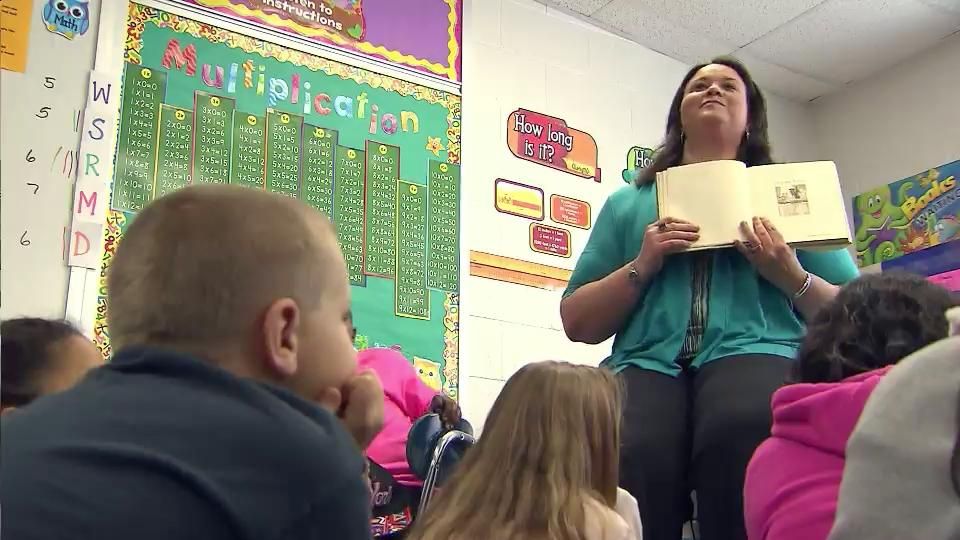Wake parents would have to pool money to give teachers gifts above $75, proposal says

Wake County Public School System parents would not be able to give teachers gifts above $75, unless they pooled their money with other parents, according to a proposal given preliminary approval by the school board Tuesday.
Basics such as hot chocolate mix or small book store gift cards would still be acceptable holiday season gifts from parents who don’t pool their money. Teachers could still apply for grants, crowdfund or receive donations that benefit their classrooms.
The school board is weighing a revised policy for employee conflicts of interest and will vote later this month to adopt it. The school board moved it to a final vote Tuesday night, giving it preliminary approval 7-1, with Board Member Cheryl Caulfield objecting to the $75 limit.
"I would hate for us to limit what kind of support we can give back to teachers," Caulfield said. She noted that teachers spend hundreds of dollars of their own money each year on school supplies.
Other board members said Tuesday they favored the cap as a standard ethical measure.
"I think $75 is still a very generous amount," Board Member Tara Waters said. The limit would also protect educators who may be uncomfortable with accepting large gifts or feel pressured to accept them, she said. "We all know the value and the worth fo the educators in our buildings."
The school board will vote again later this month to give final approval to the policy change. Board members asked the school system to, before the next vote, make sure the policy doesn't prohibit teachers from being paid to be tutors for students within the school system.
The policy outlines rules around employees accepting gifts from outside entities, particularly when they come from anyone with a vested business interest in education. It’s intended to prevent outsiders from providing bribes, or anything that could be perceived as a bribe, to school employees.
The proposed revision to it would bar employees from having a financial interest in things sold to schools and from being involved in contract decisions in which a family member has a financial interest. It would also disallow employees from recruiting students for outside activities in certain circumstances. And it would prohibit cash gifts and gifts from individuals, including parents, that would top $75, with the exception of prizes won or gifts for their schools or classrooms.
That would still allow families to pool their money to provide higher-priced items, like a spa visit, to a teacher.
The school board is revising the policy at the recommendation of the North Carolina School Boards Association, which periodically recommends changes to policy to school boards across the state.
How much to restrict teacher gifts
In policy committee meetings earlier this fall, school board members were skeptical of the gift limit at first. School system officials had proposed only allowing gifts of “nominal” value, then limiting gifts at $50.
But school board members noted at least some families provide higher-priced gifts.
Some board members don’t want teachers, who they said are underpaid and under appreciated, to be unable to accept them.
During a meeting last month, Board Member Lynn Edmonds said she believed gifts should be capped at a certain value to avoid “pay for play” but supported a higher limit of $100. She said many schools have “very gracious parents who are willing to do a lot.”
Caulfield originally argued for removing the dollar limit entirely because some families want to provide gifts, like a nice dinner out with their families or a massage, that are harder to find for less than the proposed caps.
Waters countered some of that argument. She said many families couldn’t afford gifts like that and limiting gifts at a certain dollar amount could prevent a situation in which teachers at wealthier schools receive more perks than those who work at lower-income schools. The gifts could also be perceived as more than an offering of gratitude, Waters said.
A teacher could feel “beholden” to families who provide higher-priced gifts, she said.
Board Chairwoman Lindsay Mahaffey echoed Waters’ concerns and suggested keeping the cap at $50 or compromising at $75. She recalled her days as a teacher in Seattle.
“One teacher at my private school was gifted a plane ticket to anywhere in the United States," Mahaffey said. With pooled money, parent-teacher organizations can send a message of thanks to more teachers, she said.
Many other professions, including medical professions, have similar ethical guidelines, noted Board Member Wing Ng, who is a physician.
CORRECTION: The board voted 7-1 to move the change to a final vote. Board Member Tyler Swanson was not in attendance Tuesday night. A previous version of this article incorrectly stated the vote total.











